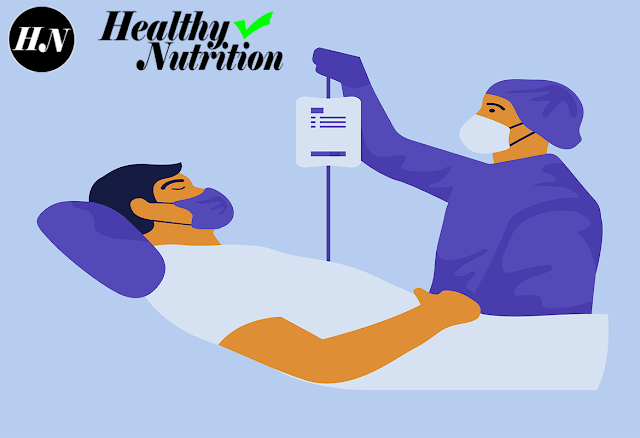Business Health Insurance For Home Care Agencies

The monthly premiums and copays of a business health insurance plan should be affordable for employees. The plan should also include medical provider networks, such as preferred facilities and doctors. You can use an online tool like eHealth to find out more about coverage add-ons and compare prices. The premiums and deductibles should be a manageable amount for your employees, and you should be able to offer prescription drug coverage. If you are a small business, you may consider purchasing supplemental insurance coverage for your employees, such as dental and vision coverage.
Business insurance for home care agency
A business health insurance policy is essential for a home care agency, particularly if you have employees who provide services in the home. This type of policy will protect you from any claims for malpractice or other misconduct, including cyber-attacks. A home health care agency has limited supervision, and can be liable for the actions of its employees, but it must remain protected. Here are some examples of insurance policies for home care agencies. In addition to business health insurance, a home care agency needs professional liability insurance to avoid lawsuits.
Business health insurance for a home care agency can be purchased separately or included in the business owner's policy. This insurance helps protect the health care agency's employees and third-party clients in the event of an injury. A home health care agency may also need workers' compensation insurance, which protects employees from injuries sustained while lifting patients. State laws typically require employers to carry workers' compensation and unemployment insurance for their employees. Business health insurance for home-care agencies should also include liability insurance to protect against lawsuits from negligence and medical malpractice.
Health business insurance
You can choose between several types of business health insurance plans. For a smaller business, you may want to use association health plans, which are reserved for companies with more than 50 employees. These plans work in the same way as a regular group health insurance plan. A group health insurance plan is a great way to provide health insurance to employees without breaking the bank. For the most part, group health insurance is much cheaper than individual plans. You may want to consider the option of adding prescription drug coverage to your plan.
A business health insurance plan requires employers to pay a portion of the premiums, usually 50% or more. Because the risk is split amongst the group members, the premiums are lower for everyone. Your employees won't be required to pay out-of-pocket for off-label treatments, which may increase the cost. Also, contributions to a business health insurance plan aren't taxable to the individuals who participate.
Small business health insurance coverage
There are three common types of health insurance available for small businesses: group health plans, self-funded plans, and Health Reimbursement Arrangements. Group health plans are most commonly used by small employers, while self-funded plans are affordable options for many companies. PPOs, or preferred provider organizations, provide a network of healthcare providers for a set fee. In exchange for a predetermined fee per service, participants may use healthcare providers outside the network. In addition, the cost of care may be less than if they used a health plan that required a co-pay or deductible.
The cost of small business health insurance is higher for employers than for large companies. However, companies with fewer than 50 employees are eligible for the tax credit. Small businesses also have a wider selection of insurance plans compared to larger firms, typically two to three times more. Despite the difference in cost, most small businesses can meet the minimum requirements for health insurance coverage. While full-time employees generally work 30 hours per week, part-time workers are eligible for health insurance coverage if they work less than 20 hours per week.
Health insurance coverage for employees
There are several types of business health insurance coverage for employees. Some are better than others, and the choice you make will depend on your specific business. Bronze plans are good for the majority of employees, but there are exceptions to this rule. Bronze plans, for example, have low premiums but may not be enough coverage for your company's large number of employees. Platinum plans are the best choice for high-cost employees who anticipate high medical costs.
There are a few key elements that you should consider before selecting a policy for your company's employees. While many companies may pay for the entire cost, others might have to pay some of the cost. This is important because you want your employees to have health coverage that is affordable for them and affordable for your company. When selecting your plan, you should work with your insurance company to collect information on employees, including their names and other personal information.
Insurance broker for small business
When purchasing employee health insurance, you have many options to choose from. You can choose a fully-funded plan for your employees, or you can opt for a more modern level-funded option. The choice of plan type and the amount of money you pay for it will depend on your individual needs, and the broker you choose will help you understand the various options available. In addition, you can also take advantage of tax credits to help with the costs.
Working with an insurance broker is important when you're selecting an employer health insurance plan. Not only will they be able to help you find the most affordable plan, but they'll also ensure that your employees' coverage meets all the necessary requirements. Health insurance laws and regulations vary depending on the size of your company, and the best broker will have experience working with small businesses. When evaluating potential brokers, ask for referrals from other small business owners.
Business health insurance quotes
Many small businesses find it difficult to obtain a business health insurance quote. These quotes typically require the employees to complete medical questionnaires. This is especially true for traditional insurance carriers that require complicated health questionnaires and add files to your policy with past claims history. To find an affordable small business health insurance quote, you can contact an agent or broker. Agents and brokers work on behalf of insurance companies and receive commissions for each sale. However, they are not authorized to give legal or tax advice and cannot provide a personalized quote.
While many insurance companies offer these quotes online, they are not necessarily final quotes. You should not rely on the quotes given by different companies as the best quote is the one that reflects the characteristics of your company and your employees. However, the modern carriers have made the process of obtaining small business health insurance quotes easier than ever. They also offer free customer service and fewer forms to fill out. To get the best quote, you should make use of a reputable insurance agent.
Small business insurance plans
Small business health insurance plans may offer healthcare savings accounts (HSA) for employees. These accounts allow employees to make pre-tax contributions toward their healthcare expenses. Employees can then use those funds for healthcare services that are not covered by their policy. Small business health insurance plans may cover the costs of prescription drugs, preventative care, and other medical costs. Aside from providing health benefits to the employees, these plans may cover the spouses of employees.
Although small businesses do not have to offer group health insurance, they can participate in a CO-OP or SHOP exchange. In the past, the most popular option for small businesses was a group health plan. However, these plans were expensive and offered little flexibility to employees. In December 2016, Congress established the qualified small employer health reimbursement arrangement (QSEHRA), a plan that allows employees to pay for their own health insurance. This option gives employees greater flexibility and administrative efficiency.
Insurance packages for small business
When looking for insurance for your small business, it's important to choose the right policy. Some companies offer tailor-made policies that provide multiple levels of protection for your business. General liability insurance, for example, will cover your business for claims resulting from a slip and fall accident in your store. You may want to add product liability insurance to your general liability policy for greater protection. This type of insurance will pay for medical bills incurred by a customer who slips or falls in your store.
Another option is a QSEHRA, or qualified self-employment health reimbursement arrangement. These policies can offer unique value to small businesses in unique circumstances and/or to those without health insurance. Some small businesses may opt to self-insure to avoid the high premiums and restrictions that group health insurance typically entails. Instead of paying high premiums and having a large employee base, self-insurance offers lower monthly costs and more flexibility. You can choose to offer your employees health insurance as a benefit, or opt to pay out-of-pocket for any claims made by your employees.




